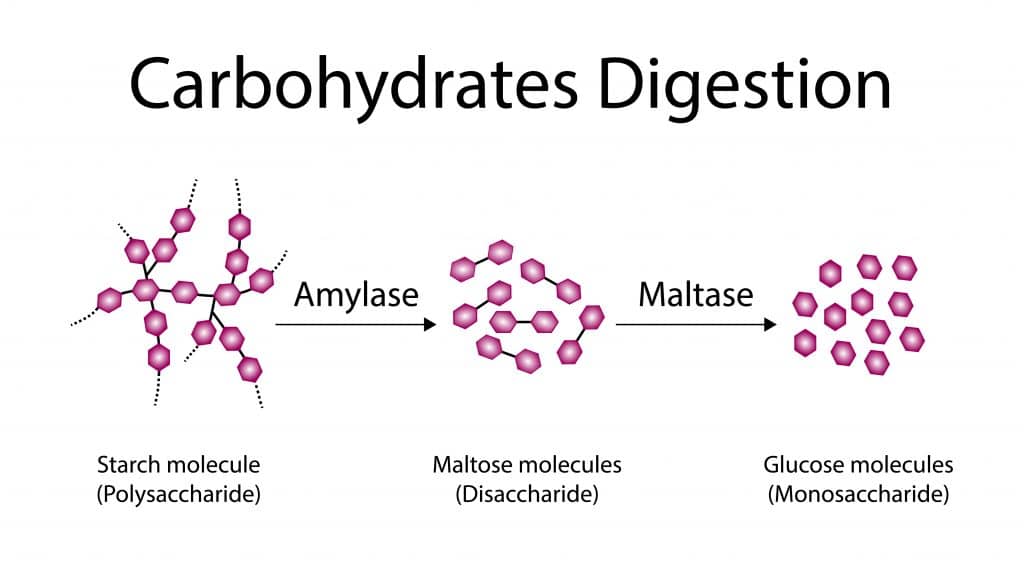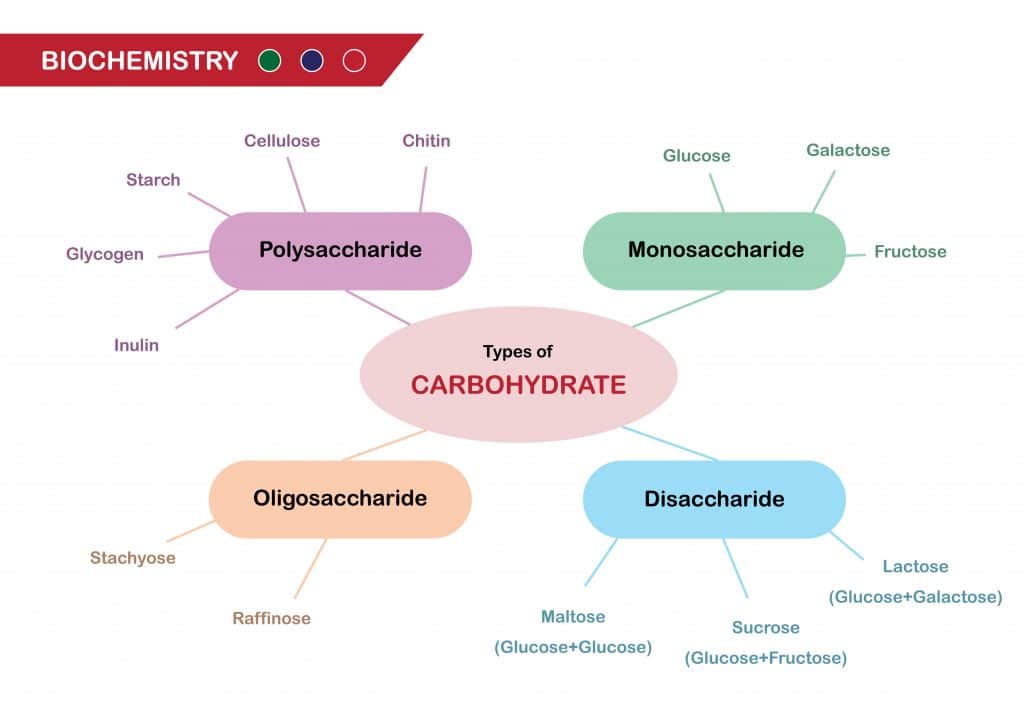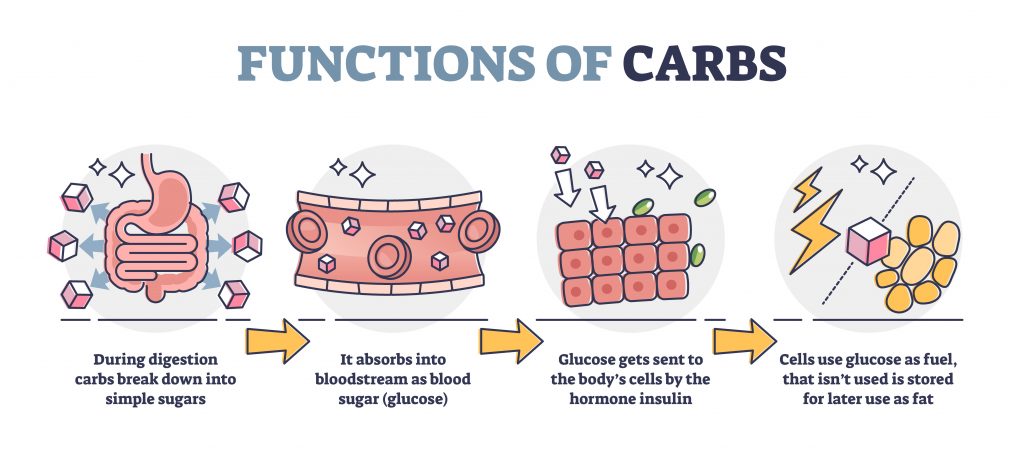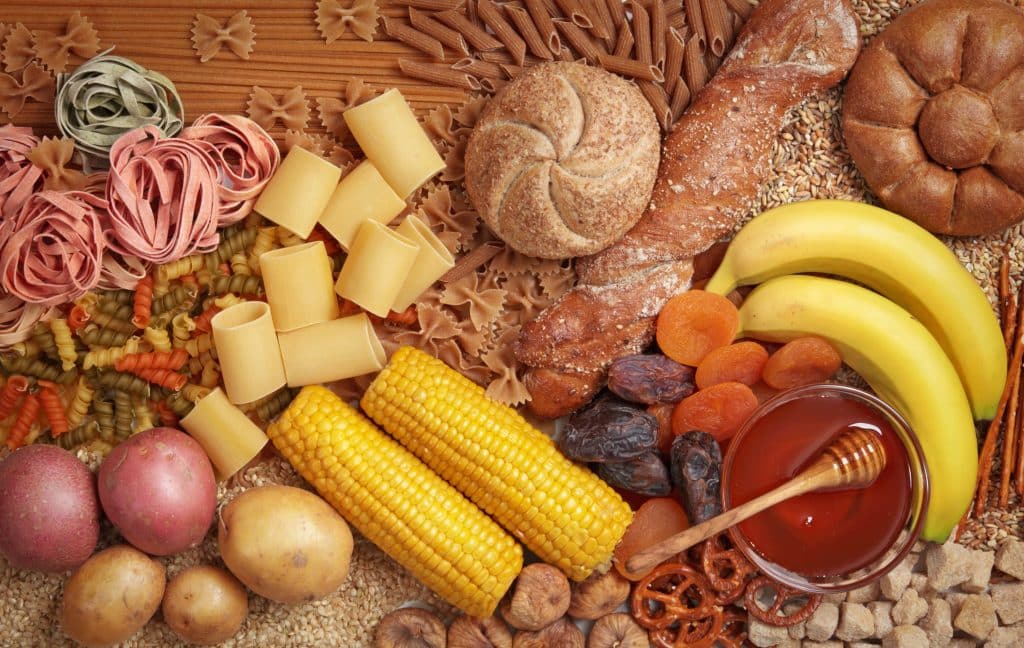What are polysaccharides, and why do you need them?
12/12/2022Polysaccharides are a carbohydrate in many foods, providing our bodies with essential nutrients. These complex molecules play an important role in many body functions and can significantly impact our health. Polysaccharides are necessary for a balanced diet, and understanding the benefits and sources of these complex carbohydrates is a key to maintaining a healthy lifestyle. But have you ever wondered what polysaccharides are and why you need them? This article will explore the benefits of adding polysaccharides to your diet, their different forms, and the foods rich in these essential nutrients.
What are Polysaccharides?
Polysaccharides are made up of many monosaccharide molecules linked together. They have diverse functions and are essential in all living organisms, including plants and animals. Polysaccharides vary in structure, depending on the type of monosaccharide that makes them up. They can range from simple chain structures too complex ringed networks.
Types of Polysaccharides
Polysaccharides have a wide range of biological functions and have different shapes and sizes. Common types of polysaccharides include starch, glycogen, cellulose, and chitin.
-
Starch
Starch has two molecules (amylose and Amylopectin). Amylose provides strength and structure to plants when they absorb water from their environment. On the other hand, Amylopectin is branched starch, which makes up approximately 80% of all starches found in nature.
Glycogen is an animal energy source stored in liver cells or muscle cells. Glycogen has structural roles within the body, providing structure to cells and allowing organs to operate efficiently.
-
Cellulose
Cellulose is insoluble in water, which makes it an ideal material for building solid but lightweight structures such as plant cell walls or paper. Its form also gives it tensile strength, making it suitable as a reinforcing agent in fabrics or plastics.
-
Chitin
Chitin is a structural polysaccharide in many organisms, including fungi, algae, crustaceans, and insects. In the human body, chitin forms part of the exoskeleton of arthropods, including crabs and lobsters. It also serves as an immune modulator by activating innate immunity to protect against foreign invaders.
Structure & Functions of Polysaccharides
Understanding polysaccharides’ structure can help us understand how these compounds affect our health and nutrition. The structure of polysaccharides may vary. Monosaccharide can be linked in α- or β-configuration to form structures for different polysaccharides.
Polysaccharides serve various functions within cells, including energy storage and cell structure support. In addition to providing energy for our bodies, polysaccharides play an essential role in healthy cell growth and development. Furthermore, polysaccharides help regulate fluid balance by absorbing water which helps keep our bodies hydrated. Digestion is another crucial function of polysaccharides as they break down starches into more easily digestible molecules like glucose.
Health Benefits of Polysaccharides
Polysaccharides are essential to a healthy diet, yet they often get overlooked. These large molecules are composed of multiple saccharide units and can be found in many common foods. Here are some of the health benefits associated with polysaccharides:
- Polysaccharides are essential in providing energy for your body’s cells.
- Polysaccharides provide bulk for digestion and help to regulate blood sugar levels.
- Polysaccharides help to promote healthy bacteria in the gut, which can reduce inflammation and aid the digestion process.
- Polysaccharides have been found to reduce cholesterol levels and may even improve heart health by reducing the risk of stroke.
- In addition, taking polysaccharide supplements may help reduce triglyceride levels, which can further reduce your risk for cardiovascular disease.
- Polysaccharides can help boost your immune system.
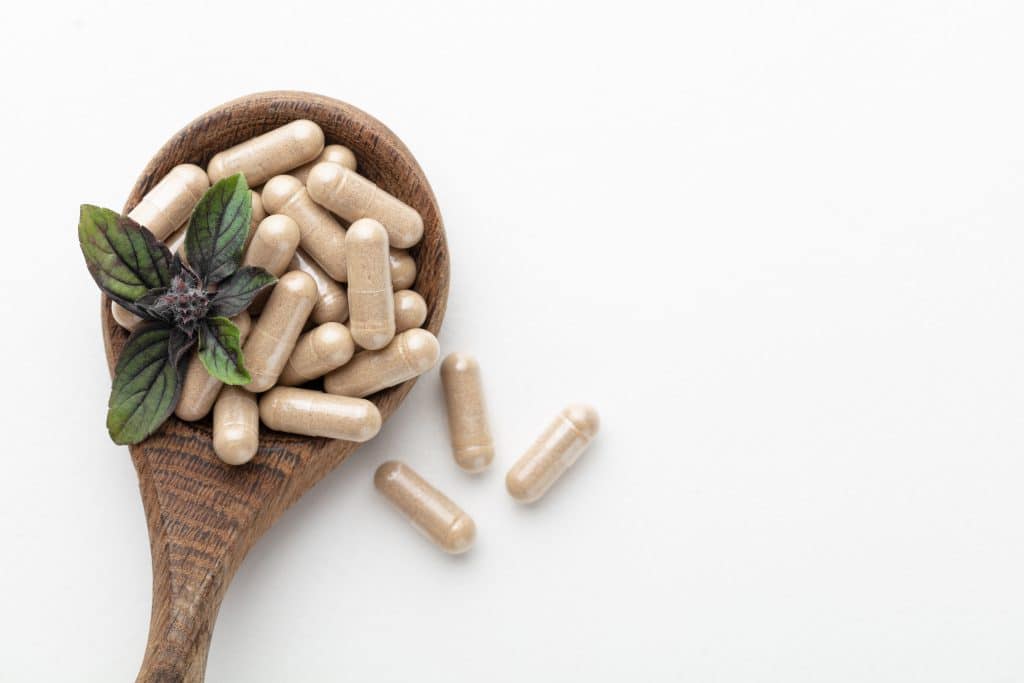
Need for Polysaccharides in Nutrition
The importance of polysaccharides cannot be overstated. They are a vital part of the human diet, providing essential energy and nutrients our bodies need to function correctly. In addition, polysaccharides, which include starches, fibre, and some sugars, play a vital role in maintaining good health.
Polysaccharides give us carbohydrates broken down by the body into glucose for energy. They also contain dietary fibre, which helps keep us feeling complete for extended periods. Additionally, they help regulate blood sugar levels and can even improve gut health by increasing the growth of healthy bacteria in the gastrointestinal tract.
Ultimately, we need to incorporate more polysaccharide-rich foods into our diets to achieve optimal health.
Top Foods Containing Polysaccharides
Polysaccharides are essential to any balanced diet and can be found in various foods. Whole grains are an excellent source of polysaccharides, with oats, barley, and quinoa exceptionally high in this nutrient. In addition, Brown rice fibre and legumes such as beans and chickpeas are all rich sources of polysaccharides.
Fruits like bananas, apples, and oranges contain small amounts of polysaccharides. Sweet potatoes are another great source; they’re packed with vitamins A, C, and B6 and dietary fiber, including polysaccharide content.
Top 7 Polysaccharides Supplements
If you’re looking for the best polysaccharides supplements on the market, here are our top seven picks:
1. Fibresol-2 by Digestive Health Solutions
This supplement helps to regulate blood glucose levels and decrease appetite. It’s also been formulated to enhance digestive health and improve nutrient absorption.
2. NeoCell Super Collagen Type 1 & 3 Plus Vitamin C tablets
NeoCell tablets can provide joint support and skin health all in one. It also contains hyaluronic acid, amino acids, and borage oil, making it an effective supplement for reducing wrinkles and promoting elasticity in the skin.
3. BioSchwartz Turmeric Curcumin
This powerful supplement helps improve joint pain and reduce inflammation and swelling. It’s also been shown to boost heart health and improve digestive function.
4. Nature’s Way Echinacea Goldenseal Root Extract
This extract has been used widely for centuries in traditional medicine for its effects on immune system health. As a result, it is ideal for helping fight off illnesses or quickly recovering from colds and flu.
5. Glucomannan
This dietary fibre supplement is derived from Konjac root and helps promote healthy weight loss and aiding digestion.
6. Chitosan
This supplement derived from shellfish shells helps reduce cholesterol levels in your body and can even help with detoxification.
7. Psyllium Husk
This soluble fibre supplement helps lower cholesterol, regulate blood sugar levels, and support digestive health.
Sources & Intake Recommendations of Polysaccharides
Here’s a look at the top sources and intake recommendations for polysaccharides:
Oats, quinoa, barley, wheat, corn-based products, and legumes, fruits, including apples and oranges, are excellent sources of polysaccharides. In addition, such as beans and lentils are included in your diet to increase your polysaccharide intake. The recommended daily intake is 20–30g, depending on age, gender, physical activity level, and other factors. Complex carbohydrates such as whole grains should make up 45-65% of total calories consumed daily, while simple sugars uptake should be limited to 10%.
Risks & Side Effects Associated with Polysaccharides
While polysaccharides have numerous benefits for human health, it is also vital to take note of their risks and side effects.
The most common risk associated with polysaccharide consumption is an allergic reaction. People sensitive to specific polysaccharides may experience nausea, difficulty breathing, hives, or other skin irritations after ingesting foods containing them. In extreme cases, this can lead to anaphylaxis, which medical professionals must treat immediately. Furthermore, people with pre-existing health conditions should consult their doctor before consuming any polysaccharide form to avoid potential adverse reactions or complications.
Conclusion
In conclusion, polysaccharides are a vital part of a healthy diet, playing a significant role in providing energy and helping us to maintain good health. They are found in many common foods such as grains, fruits, and vegetables, making them easy to integrate into our daily diets. In addition, polysaccharides also provide benefits such as improved digestion, better regulation of blood sugar levels, and increased protection from diseases. Ultimately, polysaccharides are essential for a balanced diet and general well-being.


